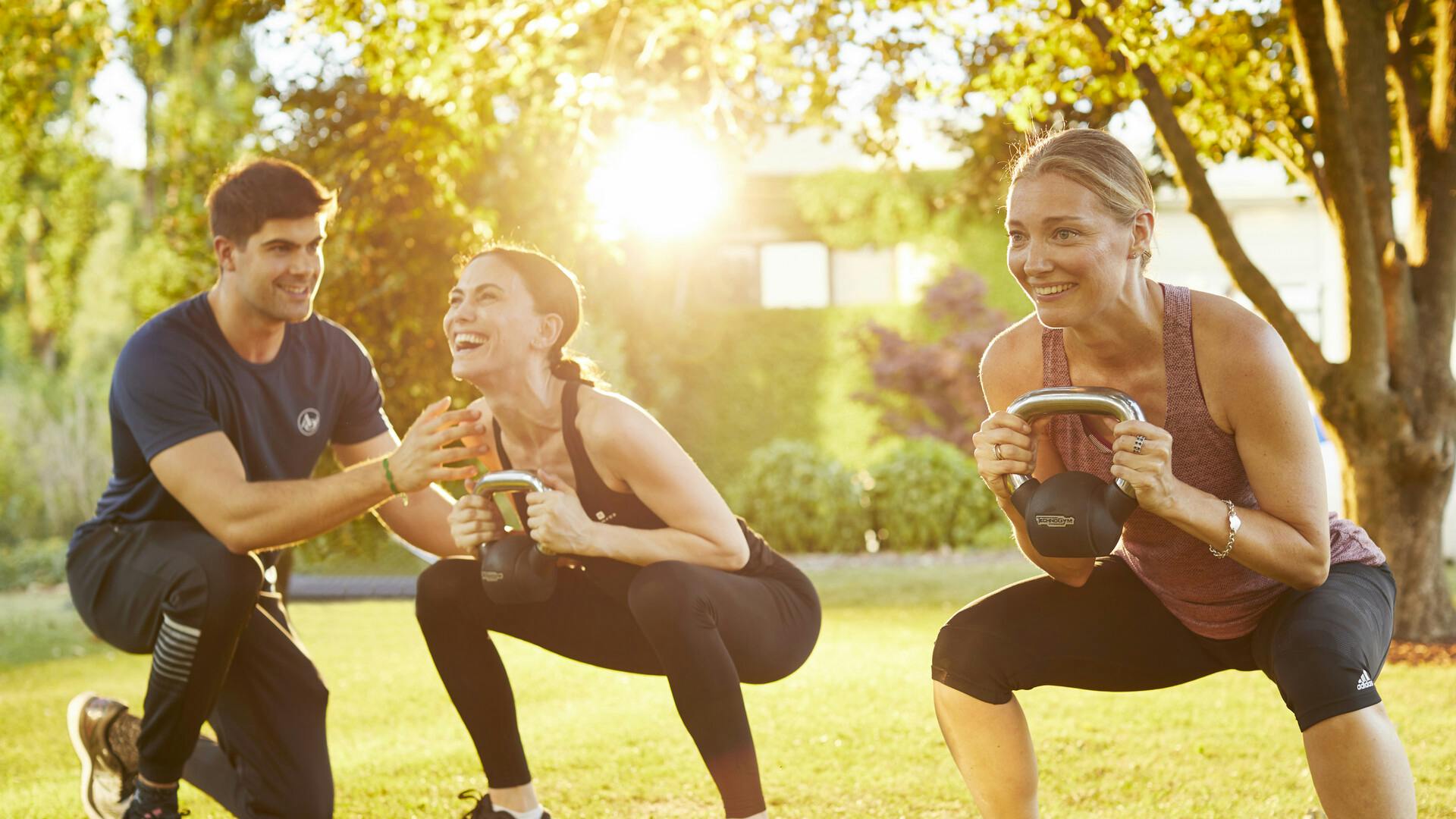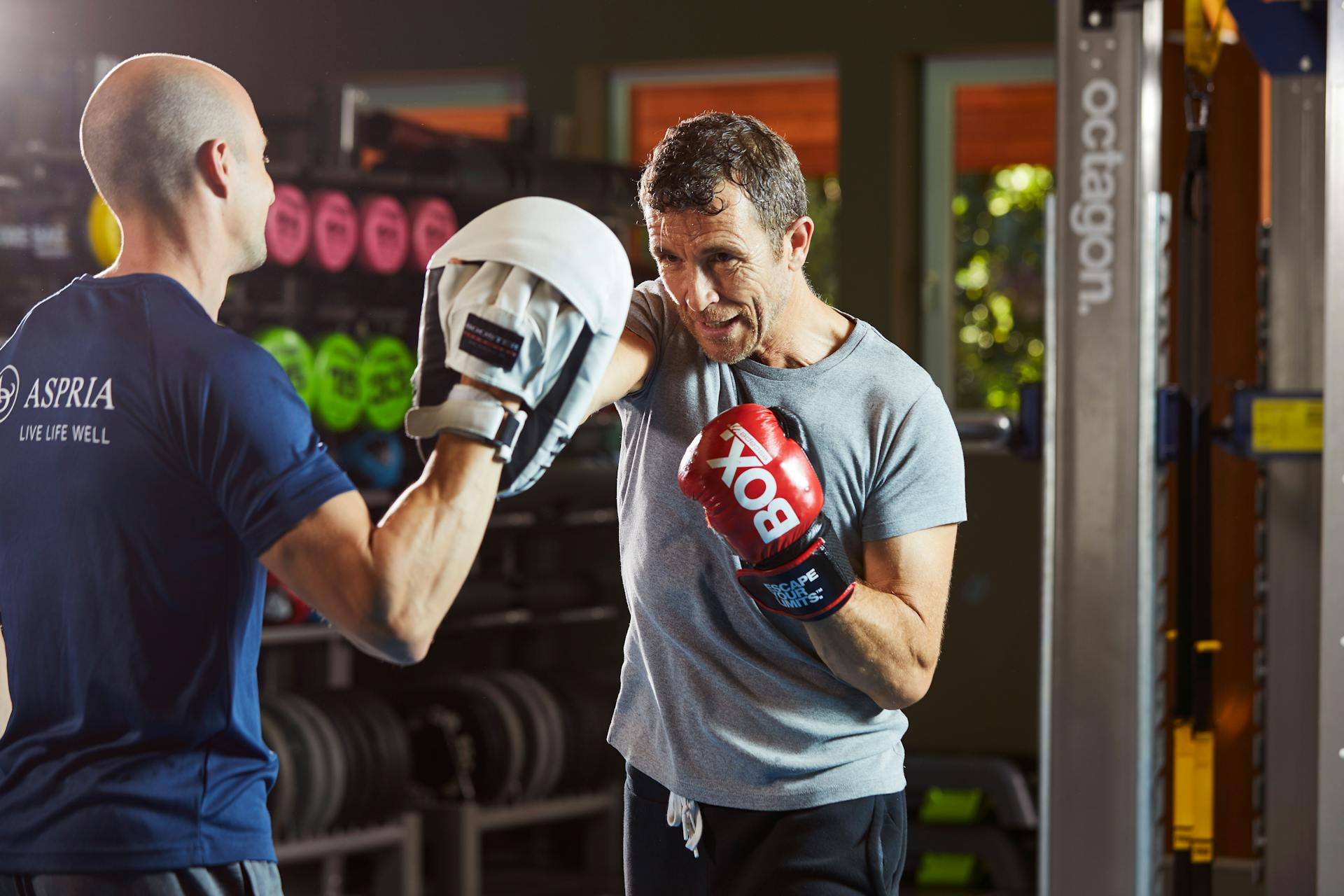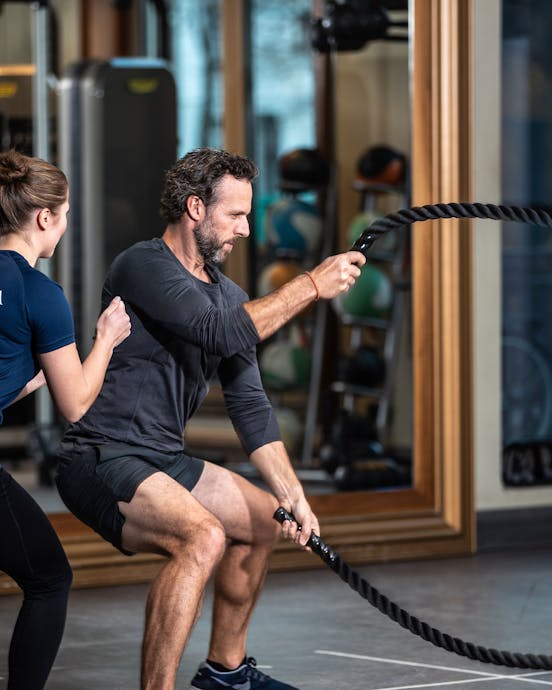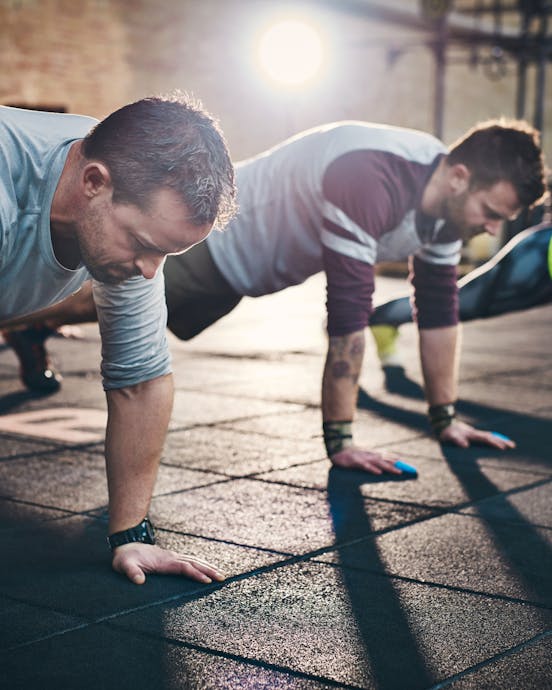Whether you want to try a new training style, decide on a different fitness challenge as the year begins, or simply need to re-evaluate your workout routine for better results, having a Personal Trainer is always a good idea. Florent Rivault, Wellbeing Manager at Aspria Royal La Rasante shares some of the reasons why and offers the most useful tips to get you started.
BENEFITS OF PERSONAL TRAINING
1. When you are a beginner
It can be daunting to start working out on your own, and to step on to the gym floor, if this is something new for you. To ensure you keep going and to gain self-confidence quickly, having 1:1 sessions with an expert is just the solution. Far from being the intimidating experience some may imagine, having a personal trainer to guide you is not about brutal exercising, but about finding a considerate, tailored approach.
As a first step, PTs can direct you in setting SMART fitness goals, and creating a gradual, bespoke training programme that takes into account all your concerns. They also introduce you to the most effective workout options, explaining which gym equipment, weight-lifting or bodyweight exercises you should mix for optimal results, saving you plenty of time you would otherwise spend either researching or trying different training styles.
2. When you are concerned about injuries or special conditions
Personal training is especially relevant when you need that extra care in identifying safe workout options, which need to take into consideration a specific physical sensitivity or perhaps an old injury. PTs can support with “re-athletisation” processes, merging personal training with physio elements for a successful post-injury rehabilitation. This focuses heavily on balance and stability exercises and the neuro-muscular impact of your training.
If, on the other hand, you have gone through a long break from training and are concerned about potential injuries when resuming your sporting activity, a PT can help you alternate between strength training, cardio and mobility exercises to ease your way back into your chosen sport, all the while ensuring you apply the correct form and techniques, and you do not over-train certain muscle groups.
3. When you just can’t see results
Whether you are looking to lose a little excess weight, or are aiming for a full body transformation, the truth is reaching a fitness goal takes time and consistency, and many times we can become impatient and demotivated when we don’t see quick results. The answer however is not to quit, but to find extra support. A PT can help by managing expectations and by providing you with extra accountability – making it harder to skip your workouts when your motivation levels are low.
Not to mention workout sessions are more fun and engaging with a personal trainer by your side – the whole point is to enjoy yourself as you become stronger and more confident, and to celebrate each little victory. And as you progress, and develop the necessary strength and stamina, your PT can adapt your training programme so that you never get bored.
A PT session is also an opportunity to push your boundaries, finding new ways to boost your performance by incorporating elements from pilates, boxing or yoga into your routine. If relevant, your trainer can inspire you to try relevant sporting activities or classes you never considered before for that extra variety.
4. When you are preparing for a sports challenge
A challenge can range from the marathon you just signed up for, to the upcoming ski season, or perhaps an adventurous hike up a mountain. Whatever the case, a PT’s phased and personalised training plan, based on your current fitness level and the time you have to prepare, is your best chance to successfully prep physically as well as mentally.
Even if you are not a novice, a personal trainer can still provide valuable support, identifying inefficient practices and potential bad habits in your usual training, helping you course correct for the specific goal you have set for yourself. This would include not only exercising, but also stretching and tailored nutrition advice, as well as best-practice tips for the day before.
5. When you want a healthy, holistic approach
Reaching and maintaining your desired fitness level should not be only a matter of training. In order to benefit from long-term results and also feel better, stronger and healthier in the process, you need to follow a holistic approach. And that is where personal training can be most helpful. Exercising is complemented by nutrition advice and the all-important post-workout recovery recommendations (including sauna, cryotherapy or massages).
And as current lifestyles are more and more affected by an unhealthy work-life balance, and in more and more cases, by burn-out and anxiety – PT sessions can also support in terms of stress management, mental health and even sleep.

BEFORE YOU GET STARTED
How do you choose the right PT for you?
In addition to checking the trainer’s profile to understand if their sports specialism and specific qualifications are relevant to you, Florent advises you to take a little time to notice how they interact with existing clients on the gym floor. This helps you check if you would be comfortable with their communication style.
What should you know before booking a session?
· All Aspria PTs are highly qualified. They are specialists, with certifications in fitness, sports and rehabilitation
· There is no “one-size fits all”. With personal training packages ranging from a one-off session to series of 5, 10, and even 20 sessions, you can choose what you think would be most useful to you.
· Usual sessions are 1 hour long, but you can also opt for 30-minute ones instead – a more affordable option, and the perfect solution if you struggle to find time in your hectic schedule.
· Depending on your preference and on what helps you keep motivated, you can decide to have your sessions 1:1, as a couple or in small groups.
What is the best advice for those starting personal training?
· Come to the session with an open mind. Don’t be afraid to go back to basics, if that is what the trainer recommends - you need to trust the process, and you will soon see a difference.
· Make a serious commitment to your own wellbeing. The trainer will help you commit to the workouts, but only you can follow suit in the other aspects of your lifestyle, according to the recommendations you receive.
What can you expect from the first session?
This 1-hour appointment is the opportunity for the PT to get to know you, exploring your background and your present lifestyle via a simple questionnaire, and determining your current fitness levels by assessing your body composition, mobility and cardio levels. Following this consultation, the trainer will propose an initial bespoke training plan based on your profile.
Having the right connection with your PT is paramount. Which is why this first session is also about checking your compatibility, and if you are comfortable with your choice of trainer.
How do PTs measure results?
Monitoring performance as you go along is of course important to help ensure your training programme includes the most effective workouts. Depending on the goals you agree on with the trainer, around every 6 weeks you would go through follow-up assessments on body composition, mobility, and cardio levels, thus checking progression on the same parameters you were tested on in the first session.



